In evaluating files and handling cases, litigation expert adjustors play a crucial role, which is examined in this article.
It talks about the essential phases in file review, methods for acceptable resolution, difficulties these experts encounter, and best practices for guaranteeing positive results.
This essay attempts to give succinct and convincing insights into the work of litigation expert adjustors through an impartial and impersonal study, highlighting their significant contributions to the legal industry.
The Function of Litigation Expert Adjusters
Litigation specialist adjustors’ responsibilities include managing the legal facets of insurance claims from initial evaluation through successful conclusion. These experts ensure that insurance claims are processed legally and appropriately.
Since they have a specific understanding of insurance laws, rules, and policies, their expertise is crucial. Reviewing claim files, conducting investigations, examining evidence, and formulating recommendations based on their legal knowledge are all tasks that litigation specialist adjustors are expected to perform.
They must be able to decipher convoluted policy wording and have a solid grasp of the legal concepts regulating insurance contracts. Additionally, in order to successfully manage the different legal challenges that may come up during the claims process, these professionals must keep current on legislation and case law developments.
The legal expertise necessary for this position guarantees that insurance claims are handled properly and within the bounds of the law.
Important Procedures for Litigation Specialist Adjustors When Reviewing Files
The following are significant stages that experts in settling legal issues use while evaluating and analyzing pertinent documentation:
1. Case analysis: The litigation expert adjustor thoroughly examines all relevant documents, including agreements, letters, and court filings. Key concerns, people involved, and viable legal arguments or defenses are all identified.
2. Document Analysis: To determine the veracity, accuracy, and importance of the papers, the appraiser carefully examines them. They also evaluate any potential abnormalities or divergences and judge the credibility of the witnesses.
3. Claims evaluation: The adjustor assesses the veracity of each party to the dispute’s claims using the data gleaned from the papers. They take into account possible damages, applicable laws, and contractual duties.
4. Seasoned Counsel: Ultimately, following a comprehensive exploration and meticulous scrutiny of the records, the adept legal adjuster extends recommendations to their clients regarding potential pathways to address the matter or pursue further action within the legal proceedings.
Strategies for Effective Resolution in Litigation Cases
Legal conflict resolution tactics that work include:
- Examining pertinent documentation.
- Assessing the assertions presented by all parties.
- Making suggestions after evaluating the information gathered.
Additionally crucial to resolution is the ability to negotiate. Effective negotiators may successfully represent the interests of their clients while looking for compromise and achieving win-win outcomes.
Strategies for settlement look at several ways to settle the disagreement out of court. These approaches frequently take alternative conflict resolution techniques like arbitration or settlement conferences into account.
The chance of a successful litigation resolution can be increased by negotiation skills and settlement strategies.
Issues Litigation Specialist Adjustors Face
Professionals in the field of litigation encounter difficulties such as understanding intricate legal processes, organizing massive volumes of evidence, and dealing with possible conflicts of interest. These issues must be carefully taken into account by litigation expert adjustors since they might hinder the effective resolution of disputes.
Communicative Problems
– The development of litigation cases might be hampered by poor communication between the parties. Language limitations or inadequate communication channels may lead to misunderstandings or misinterpretations.
– Insufficient client communication may lead to misconceptions about case strategy, expectations, or intended results.
Management of Time
– Deadlines for submitting paperwork and showing up in court are sometimes very severe in litigation proceedings. Effective time management can prevent missed deadlines from having a detrimental influence on case results.
– Juggling many cases at once can be difficult for litigators, necessitating effective time management skills to fulfill all deadlines.
Legal Difficulties
– For litigation experts, the complex structure of legal processes and rules is a substantial obstacle. A successful case settlement depends on compliance and an understanding of complicated legislation.
– Legal complexity must be navigated effectively in order to analyze huge volumes of legal information and apply it correctly.
Guidelines for Litigation Specialist Adjustors in Case Resolution
Implementing methods and practices that maximize the efficacy and efficiency of the litigation process is a vital component of a successful case settlement. Litigation expert adjustors can benefit by using a range of bargaining strategies, implementing efficient communication tactics, and going through a careful case appraisal process.
Effective case resolution depends heavily on negotiating tactics. These consist of locating potential points of compromise, comprehending the objectives of the other side, and investigating alternate conflict settlement procedures. Litigation expert adjustors might strive to reach amicable agreements using these tactics.
Successful case resolution also requires effective communication skills. Information is more correctly communicated and comprehended when there is clear and concise communication with all parties.
Since they demonstrate respect for each party’s perspective, active listening techniques are essential during negotiations.
Determining a case’s strengths and flaws also requires completing a thorough case review. Litigation expert adjustors can create well-informed tactics based on a precise appraisal of the legal challenges thanks to this evaluation procedure.
Frequently Asked Questions
How long does a litigation case usually take to get resolved?
Various factors can affect how quickly a lawsuit is resolved on average. These elements include the number of persons engaged, the intricacy of the case, and the availability of evidence. In order to speed up the settlement process, effective communication between all parties is essential.
What particular skills and background are necessary to become a litigation specialist adjuster?
A background in law or insurance, familiarity with legal procedures, strong analytical abilities, attention to detail, and the capacity to interact with clients and negotiate settlements are among the talents and experiences needed to become a litigation specialist adjuster.
What common negotiation techniques do litigation specialist adjusters employ?
In order to negotiate settlements, litigation specialist adjusters frequently use a variety of strategies, techniques, tactics, and negotiating approaches. Through efficient communication and conflict-resolution techniques, these methods seek to produce positive results.
What could happen if a litigation specialist adjuster doesn’t follow best practices when resolving cases?
As a litigation expert adjuster, following best practices while resolving disputes might have negative effects. These include drawn-out case settlement processes and possible harm to one’s professional credentials.
Do litigation specialist adjusters need to be aware of any particular laws or regulations during the resolution process?
During the settlement process, litigation expert adjusters need to be aware of all pertinent rules and regulations. For a settlement to be effective, adherence to legal and regulatory criteria is necessary. Understanding duties and responsibilities and having the requisite knowledge are essential for effective resolution.
Ready to enhance your claims resolution process? Partner with BSA Claims and leverage the expertise of litigation specialist adjustors to streamline your cases from start to finish. Our comprehensive solutions empower you to navigate complex legal challenges, optimize negotiations, and achieve successful outcomes. Revolutionize your approach with BSA Claims and experience the difference today.






